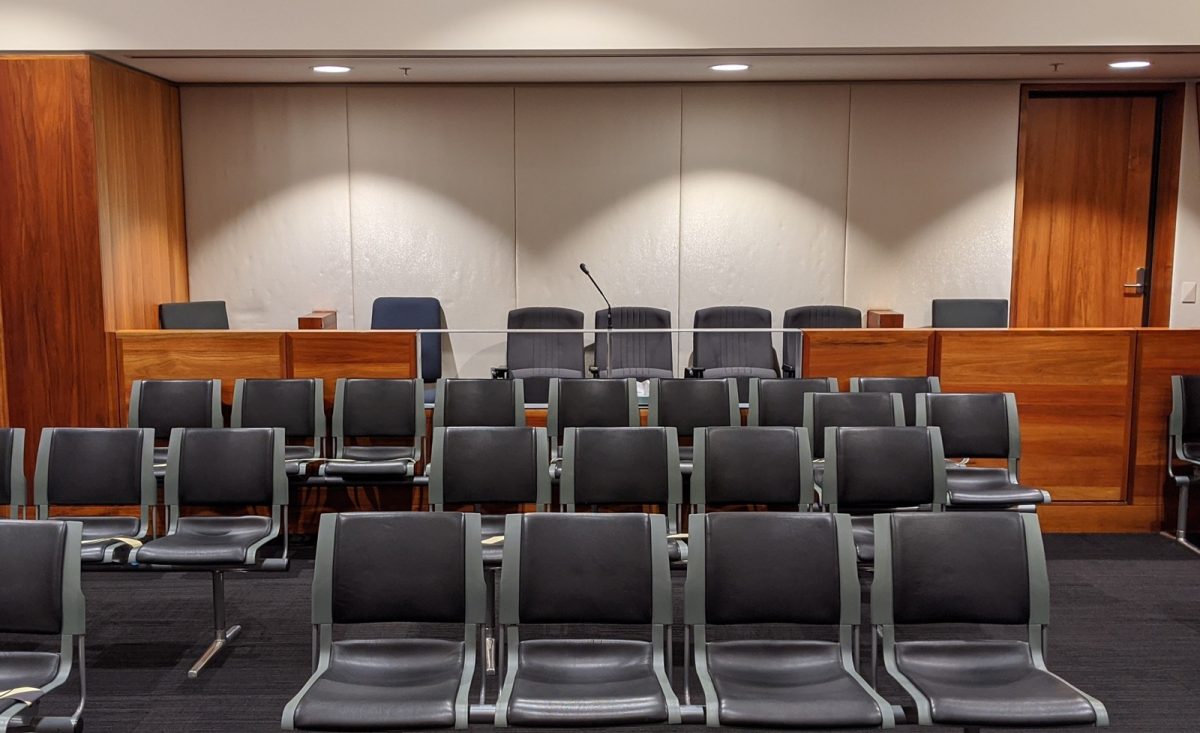
Interpreters who work in Victoria’s court have walked off the job. Photo: County Court of Victoria.
Interpreters who work in Victoria’s courts are midway through a month of collective stop-work actions as they strive for improved pay and work conditions.
Following a 27 July stop-work meeting, court interpreters met this morning (4 September) for 90 minutes at the County Court Forecourt in Melbourne’s CBD for the third Wednesday in a row, with a further meeting planned for 11 September.
The union representing the workers says court interpreters were previously contracted by the Victorian Interpreting and Translating Service (VITS) to be engaged on a half-day or full-day basis. But it says this has recently been amended to 60- or 90-minute engagements with 15-minute incremental extensions as needed.
Reports have indicted the change would result in cuts to annual income of between $8000 and $30,000 for interpreters.
Professionals Australia Victorian Director Scott Crawford said the change was a “severe blow to hardworking court interpreters already subjected to poor working conditions and low pay”.
“The move by Court Services Victoria to shift from half or full-day engagements to one-and-a-half-hour engagements with potential 15-minute extensions means court interpreters are facing uncertainty around the courts’ expectations and consequently be inhibited in their ability to earn a living wage,” he said.
“This makes it impossible for interpreters to plan their workday and severely undermines their capacity to earn a reliable income.
“The move also discriminates against linguistically diverse (CaLD) and deaf communities who may not have access to these vital services because fewer court interpreters will likely be available under these uncertain and poorly remunerated conditions.”
The union says the four Wednesday meetings are “only the beginning”, and has undertaken to “regroup and decide together” on the next action until the issue has been addressed to its satisfaction.
“As the union for translators and interpreters, it would be illegal and irresponsible for us to call for unprotected industrial action,” a statement from Professionals Australia reads.
“However, we can advise you that, as independent contractors and casual workers, interpreters who are unhappy with these new terms for court bookings are free to decline offers for those bookings.”
Mr Crawford said there had already been some poor legal outcomes in the courts due to the lack of interpreters being available for court proceedings.
“Recently, a Russian-speaking woman fleeing domestic violence and staying at a refuge was accused and subsequently arrested and charged with sexual harassment of a teenage boy,” he said.
“Not being able to speak English, and not being provided with an interpreter during the initial police interview or the first day of court, her legal rights were not explained to her.
“As a result of the charges of which she was fully acquitted at a later date, she lost custody of her children and has not been able to restore it to this day,” he added. “We must absolutely avoid the repeat of tragic miscarriages of justice such as these.”
Mr Crawford said lost wages attributed to the cutting of scheduled work hours were exacerbated due to what he described as “poor remuneration” for court interpreters.
“This cut to scheduled work hours comes at a time when court reporters have not seen a single increase to their pay in six years,” he said.
“It is simply unacceptable for Court Services Victoria to exploit this highly skilled and professional workforce in this manner, particularly when their services are so essential to the integrity of our justice system.
“We call on Court Services Victoria to immediately reinstate half and full-day engagements for court interpreters in the interests of fairness for hardworking court interpreters and for the effective and sound operation of our court system.”




